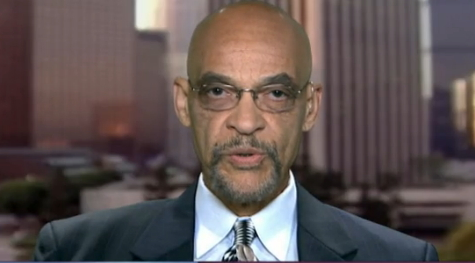Earl Ofari Hutchinson
Bezos One of the World’s Top Richest Man or Richest Miser When It Comes to the Poor
Amazon CEO Jeff Bezos made headline news again with the announcement that he donated $10 billion, the biggest private donation in 2020, to a slew of organizations fighting climate change. One of the world’s top richest men, Tesla CEO Elon Musk barely edged him for the number one world’s richest man spot, Bezos was hailed for his generosity and for putting his checkbook where his passion is in saving the planet. Bezos could certainly afford to plow billions into his pet cause. But he could afford to plow a lot more of his billions into the pockets of the neediest of the need. They are America’s soaring number of poor and hungry. Death and a legion of chronic illnesses they suffer are a far more immediate threat to their existence than global warming.
Any sum that Bezos pumps into any cause is still a relative pittance. His wealth tops that of the GDP of 132 nations on the planet. To be exact, Bezos earns $2500 per second. This works out to $150,000 per minute in his bank account. He’s well on track to be the world’s first trillionaire by 2026.
Bezos is no different than many of the uber wealthy. Studies of their giving have repeatedly shown many are every bit as miserly as he is. They give slightly more than one percent of their wealth away. Bezos is even stingier. In recent years, he’s given less than one percent away. Out of $100,000, this tallies out to $90.06 he spends on charity. Even Trump who will never be confused with philanthropist of the year, gave away about three percent of his wealth. Bezos took much heat for his miserliness when his ex-wife, Mackenzie Scott, did a classic take that Jeff and doled out billions from her Amazon stock divorce settlement to a wide range of charities. She made clear there would be more, much more giving, to come.
Now, in times past, a plea to Bezos to loosen the spigot on his giving on a cause such as the battle to end hunger in America and other anti-poverty initiatives probably would have quickly fallen on his deaf ears. After all, the poor, even the hungry poor, no matter how many are children, haven’t exactly been a cause celebre among most Americans, let alone policy makers and politicians, GOP or Democratic. Public references to poverty virtually disappeared from the nation’s vocabulary by the end of the 1960s. The continued existence of so many poor people after a decade of civil rights gains, the rash of initiatives and programs to end poverty, and massive government spending on the poverty programs by President Lyndon Johnson in the 1960s, was ultimate proof to many that tossing money and programs at ending poverty was flawed, failed, and wasteful.
It seemed to fly squarely in the face of the embedded laissez faire notion that the poor in America aren’t poor because of any failing of the system, but because of their personal failings. This is not just the hard-bitten attitude of GOP free market conservatives. It is the attitude of the majority of Americans, including many of those who were poor. When poverty crashed back on the public radar scope in 2001, polls were taken to find out just what Americans attributed poverty in the nation too.
The terms that were bandied about by many of the respondents no matter their background was that the poor were “unmotivated,” “lacked aspirations to get ahead,” and “didn’t work hard enough.” A majority believed America was a place where with hard work and determination anyone could succeed. In other words, the loud message was that if you’re poor, it’s your fault, don’t blame society, and especially don’t look to government to be the cure.
By then the super-rich, such as Bezos, who could have tossed more dollars into end hunger and poverty campaigns, found a wide array of more headline grabbing, even chic, causes from saving charter schools to saving the earth. But even then, Bezos remained the exception among the wealthy with his continued skinflint lid on his personal pocketbook.
COVID has partly changed the game. With the massive health, job, and business dislocation that it has wrought, the hungry and poor, are now in everyone’s face. The lines of cars backed up miles at food giveaways are grim testament to that. Those lines won’t go away anytime soon. Scott in public statements was moved enough by the poverty and suffering she saw to shell out her billions to many of the groups fighting hunger and poverty.
Now Bezos has not totally ignored the hungry poor, In April 2020, he donated $100 million to Feeding America to help U.S food banks increase food security in America. But that’s less than a relative pittance for him, and it was only a one-time donation.
Bezos in putting his heart and a little of his purse in fighting the climate catastrophe is doing his part in that fight. Now Jeff, put that same heart and even more of your purse behind fighting hunger and poverty in America. You’ll get headlines and applause for that too.
Earl Ofari Hutchinson is an author and political analyst. He is the author of What’s Right and Wrong with the Electoral College: (Middle Passage Press) He is a weekly co-host of the Al Sharpton Show on Radio One. He is the host of the weekly Hutchinson Report on KPFK 90.7 FM Los Angeles and the Pacifica Network

